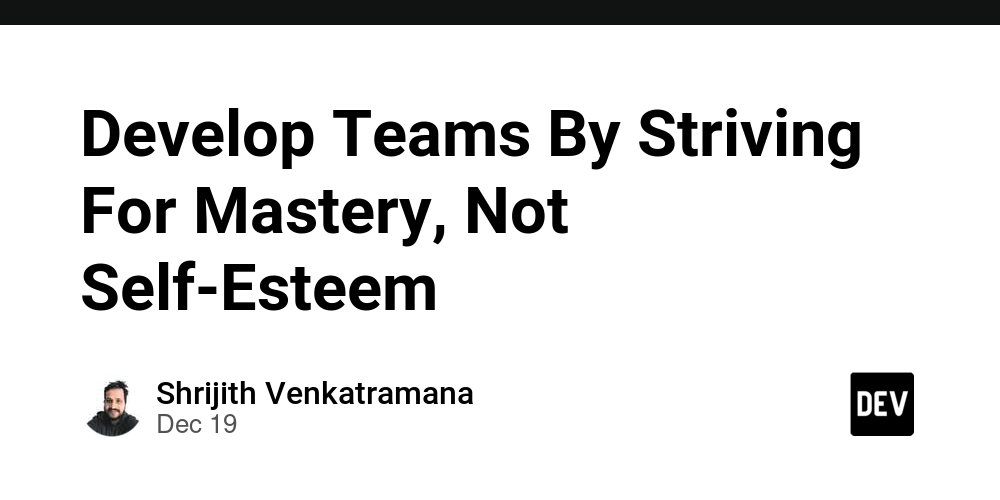If I compressed the value of the entire article into two sentences, it would be these two sentences:
By striving for self-esteem, you will not gain self-esteem and you will not gain control.
By striving for mastery, you may achieve mastery, and if you do, you won’t need self-esteem.
The Illusion of Self-Esteem and Its Antidote: Competence
We see in many misguided management philosophies where the entire focus is on maintaining and enhancing appearance:
- How to dress better
- How to present yourself better
- How to affirm a person’s quality
- How to use beautiful and eloquent language skills
Typically, there is a task that needs to be accomplished—usually with some unpleasant aspects. Accomplishing tasks often requires hard work, perseverance, and relentless effort.
But we’d rather hide it behind a mass of carefully crafted words and sentences.
Why do humans fall victim to this, or often consciously choose such a path?
because of us feel good Showing competence without paying the necessary price rather than becoming competent the hard way.
We would rather enhance our self-esteem by improving our social or psychological status than actually Solve the problem at hand.
The truth is, no lie lasts long; maintaining a façade is often an empty act, and at times, it can weaken and weaken the spirit of the person involved.
The value of work goes far beyond mere financial gain
Most of us are part of the economic machine.
We think of work as making money, making a living, and providing basic safety for ourselves and our loved ones.
All of these are common motivations for working.
Once we have achieved these desired outcomes through work, we want to “retire”—we want to stop working.
Viewing work as a “means to a material end” undermines its true value.
The value of work is profound, spiritual, and transcendent.
In Indian philosophy and spirituality, the idea of ”Advaita” (unity) is very important.
Especially the concept of “karma yoga”.
When you make a system “work,” your understanding, your actions, your desires, your goals, and your reality—everything breaks down into a single, well-functioning outcome.
That moment when some of your actual efforts produce concrete work results is all one. You are one with reality.
When this is done, we emerge from the typical lost dream world into which we often fall.
Worries about the future disappear the moment you work. So does tempting but false hope. The same goes for painful or distracting memories from the past.
One is at one with reality, one is in perfect harmony with the laws of the universe – no social or psychological nonsense interferes with one’s life.
Our psychological dissonance is completely destroyed, if only temporarily.
This is a profound benefit the right job. Why would anyone stop doing this?
The right work is its own reward.
Using our own given abilities to make things work – we become one with reality.
What could be more beautiful and meaningful than this?
How do you strive for mastery while avoiding the pitfalls of self-esteem?
There is a significant bias in modern society:
- verbalism
- Quick and simple speech
- symbolic argument
- Data/evidence bias
- obsession with universal statements
With the push for “universal” ways of speaking, computing, etc., the original context or situation is often ignored.
However, mastery is tightly integrated with the problem context.
Athletes don’t make universal statements What The game is about.
Their mastery is reflected in how They play games.
When they win, through the way they play, we learn What They know there must be some validity.
The acid test of mastery is the sustained and successful completion of relevant tasks or goals.
From a mastering perspective:
- To do is to think; to think is to do
- Specific work results > General statement
- Abilities > Verbal Agility
- Quiet Confidence from Evidence > Bragging, Affirmation, and Blind Belief
- Focus on the larger universe > Focus on limited social and psychological events
To summarize…
In short, true mastery lies not in making general statements or relying on verbal agility; It’s about understanding and transcending within the context of the task at hand. Success comes from consistent, thoughtful action and the quiet confidence that comes from proven results. Mastery is the ability to master complexity with competence, putting aside superficial boasts and embracing deeper, more meaningful accomplishments.
If you’re interested in more insights like this, feel free to like, comment, and follow for more. Also, check out my products, Instant APIa powerful solution designed to streamline your processes. Stay in touch for more information!
